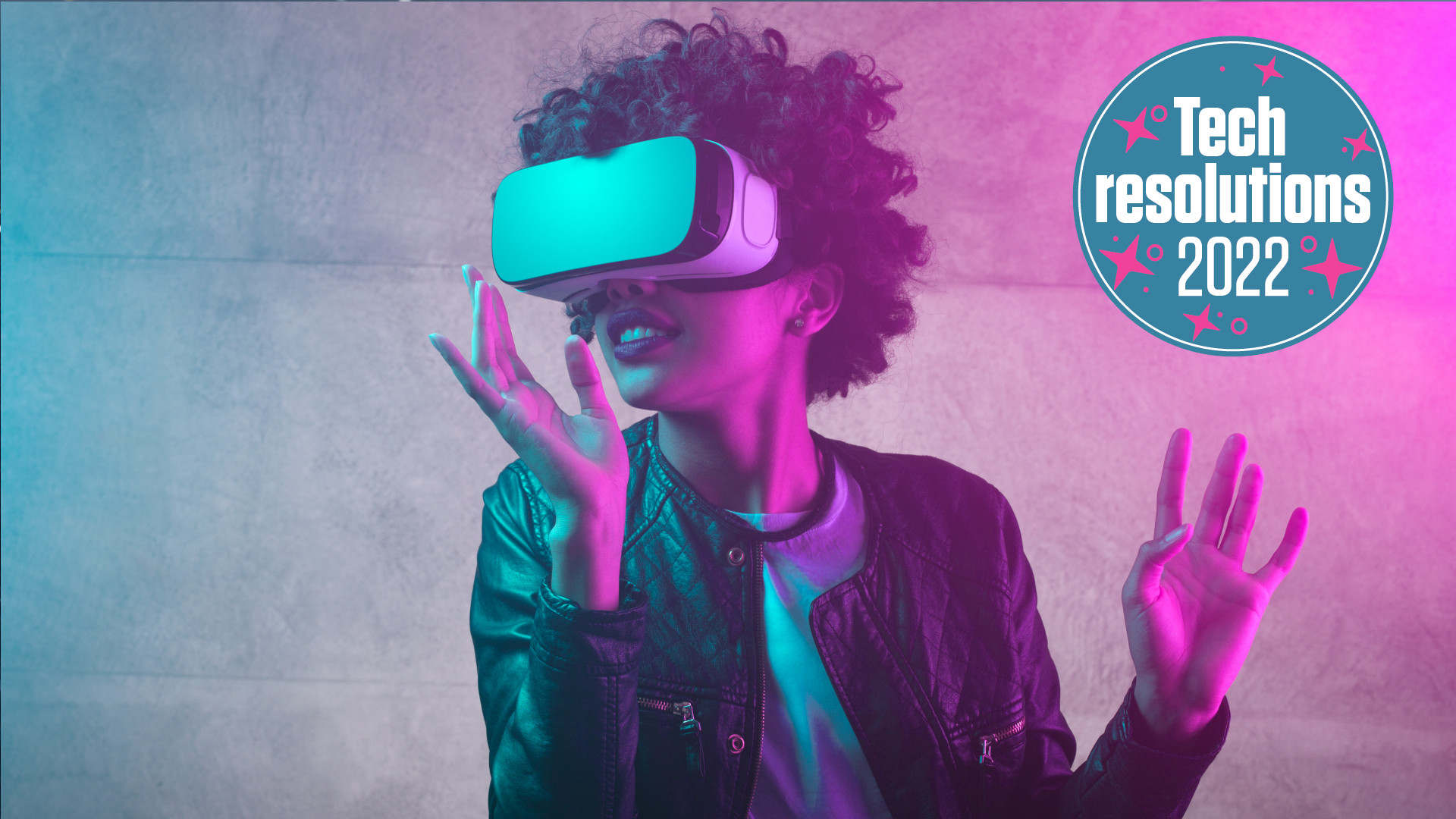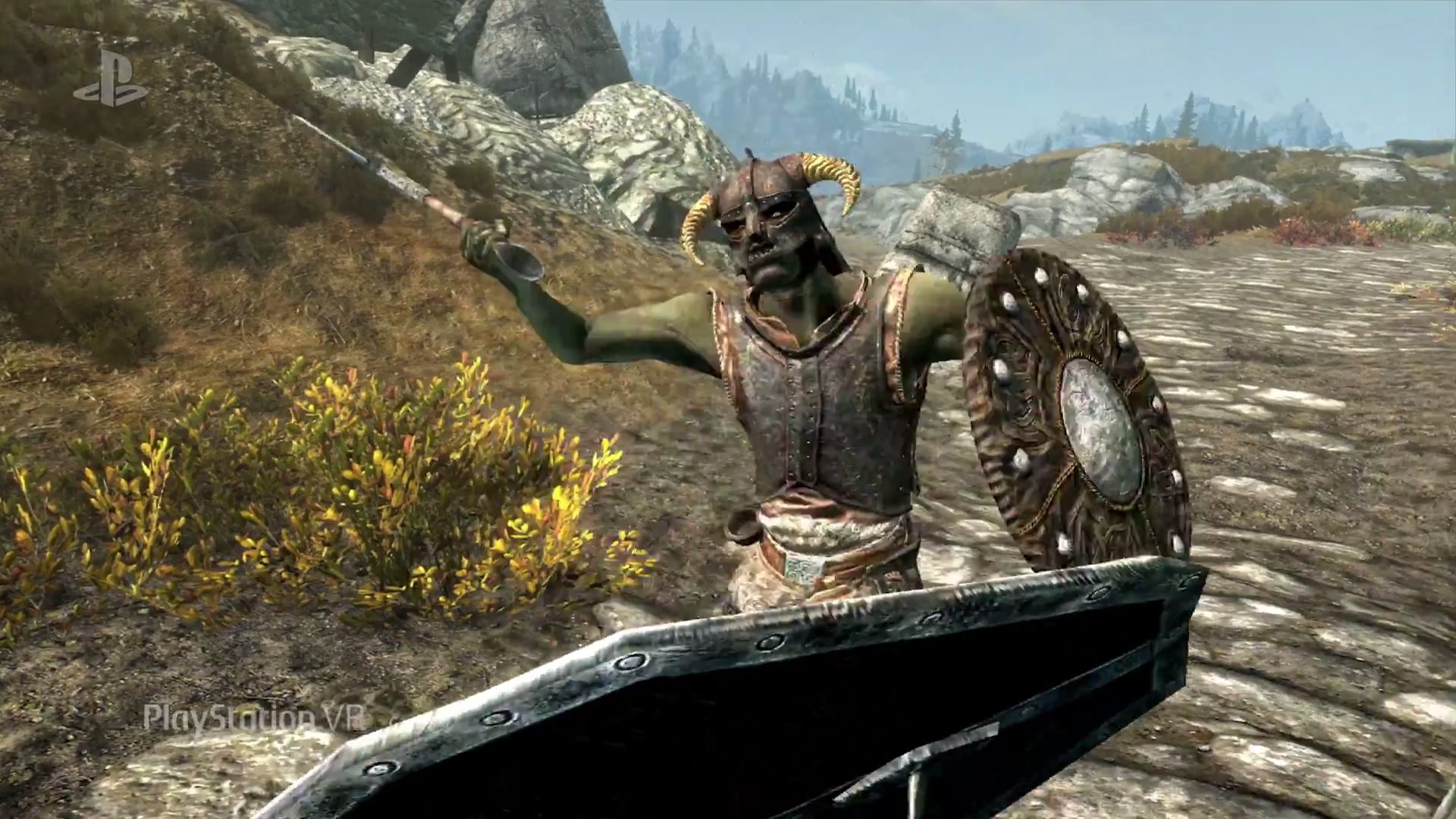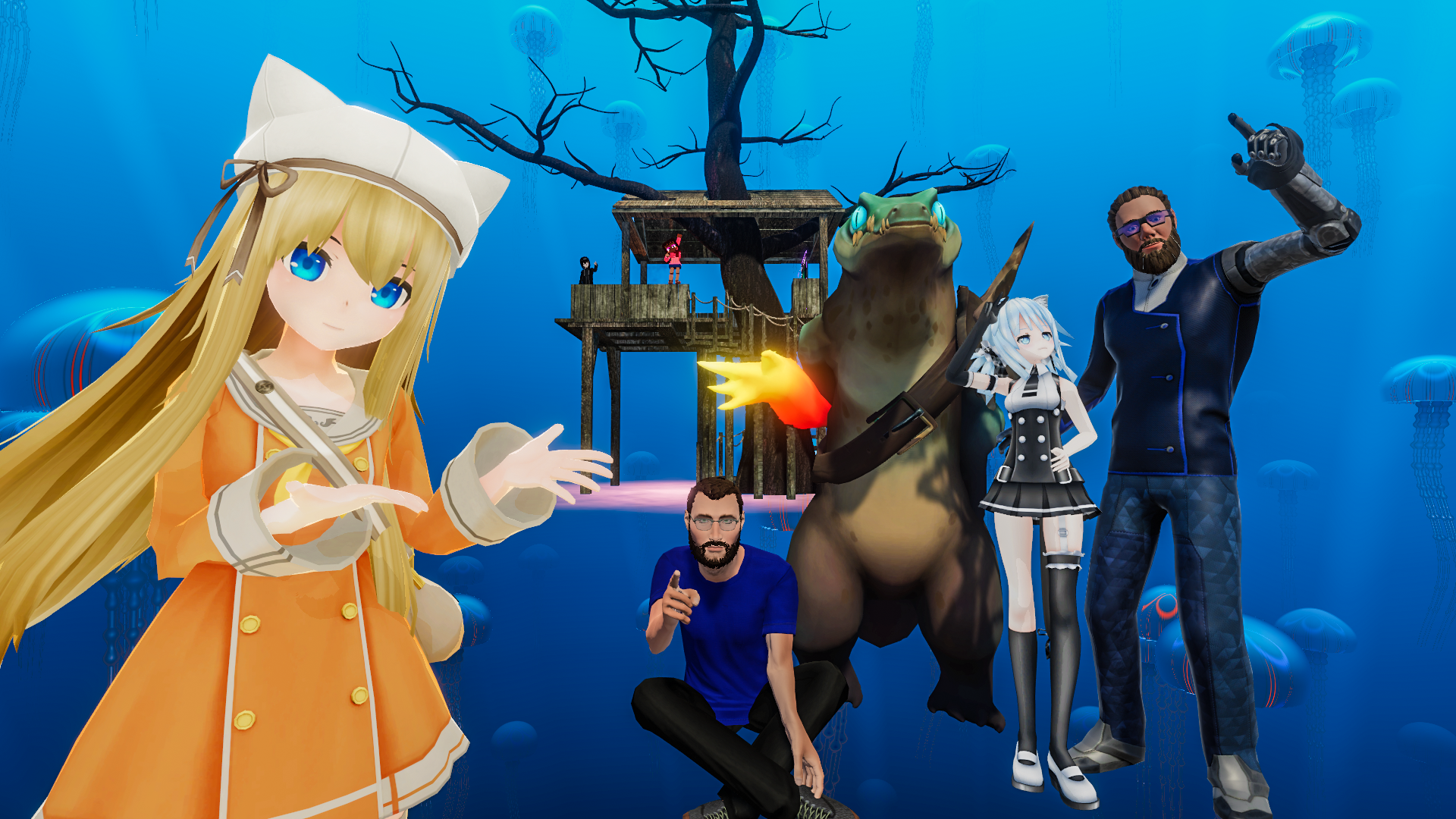2021 sucked so I’m spending 2022 in VR
It’s not like Ready Player One, but it’ll do

VR headsets are becoming more widely available, previously having been a product acquired by only the most dedicated of gaming geeks and tech enthusiasts. While they’ve actually existed since the early 90’s, the first successful consumer VR headset was the Oculus Rift – a crowdfunded project from back in 2012 – which brought virtual reality into our homes for the first time.
Almost 10 years on and we now have a plethora of options to choose from, to the point where it can get a tad confusing for anyone trying to find the best VR headset to suit their needs. One of the most popular options on the market right now is the Oculus Quest 2 thanks to its affordable price (when compared to other products), lightweight design and overall high quality, which makes it one of the best entry-level headsets you can go out and buy right now.
With VR’s popularity exploding we’re seeing more developers creating games for the hardware, and Meta’s announcement regarding its Metaverse likely means that virtual reality spaces are only going to get bigger. This progress is causing some concern for folks who are worried about innovation in VR tech leading to less time interacting with the real world, but after living through the ongoing pandemic for the last two years, I really couldn’t give a damn.
Depending on where you live on the planet right now, the outside world sucks. Covid-19 is still causing havoc, global warming and pollution levels have me stressed beyond belief and other people on the street seem ruder and more aggressive than in pre-pandemic times.
I’ve often joked about spending my retirement in virtual reality so I can fight dragons, dance to what will then be ‘retro’ emo music and customize my avatar to look like a sassy bombshell despite my withering exterior. With how stressful the last two years have been though, might as well get an early start, right?
Okay, maybe that's a tad extreme. I won’t be spending the entirety of 2022 with a VR headset on (mostly because they get uncomfortable after a couple of hours), but having finally acquired an Oculus Quest 2 of my own I am going to spend more time exploring virtual reality spaces out of curiosity for how the tech has developed and also because I really, really need to take a break from the real world.
Virtual reality gaming

Video games are typically the main reason why someone would buy a VR headset, and I’m including myself in that. I could easily just point you over to our list of the best VR games for recommendations but I haven't had the time to play through everything on it yet. That said, there are a few staple games I think you should try if you want to sink some real-time into something rather than a short ‘VR experience’ that can be completed in a couple of hours.
Get daily insight, inspiration and deals in your inbox
Sign up for breaking news, reviews, opinion, top tech deals, and more.
Let's talk about Skyrim. Yes, again, only this version is more exciting than it being released onto a calculator or whatever platform Todd Howard is going to announce it's being released onto next year. Skyrim wasn’t exactly built for VR but given you can play not just the base game, but the Dawnguard, Hearthfire, and Dragonborn DLC too, this is a title that you can genuinely spend months playing and still find new content.
Even after hundreds of hours playing the regular version on my Xbox 360, PC and Nintendo Switch, running past giants and through creepy mines in virtual reality makes it feel like a whole new game. Better yet, if things get tired you can use mods to change the experience, which makes this one of the best games where you could actually ‘live’ in VR. If old school fantasy isn’t your thing then also look at Fallout 4 VR which offers a similarly massive open-world experience, though with a lot more guns and an absence of dragons.
Beat Saber is another ‘must play’ VR game that you can play for lengthy periods of time, with numerous expansion packs available for your favorite songs and artists. It gives me similar vibes to Guitar Hero in that you’ll have to practice often to be any good at it, which will work up a serious sweat.
This is actually one of the reasons it was one of the first games I downloaded. Having gained some serious weight after my daily commute to a now-closed office disappeared at the start of the Covid-19 pandemic, I’m looking for ways to get myself fit again. Beat Saber requires a lot of arm swinging and it's impossible not to at least bop along to the music so you’re getting a decent low-impact body workout just by playing for a few hours. Plus you feel like you’re smashing things with a lightsaber, which is never not going to feel cool.
Staying social in VR

I’m hardly known for being a people person but it’s important to stay connected and avoid isolation to keep our mental health in check. One of the criticisms about VR is that it detaches you from the real world (which is kinda my goal here), but doing so doesn’t mean you have to be a loner.
There are plenty of ways to chat and interact with folk online in a VR space, something that the Metaverse is also trying to expand on. While businesses are interested in this for remote working purposes, there are more entertaining ways to get some much-needed social interaction without waiting around for Mark Zuckerberg to create more virtual, interactive offices.
Star Trek: Bridge Crew is fantastic fun if you have a group of friends with VR headsets, and thanks to crossplay you don’t have to be using the same systems so PlayStation VR users can also play alongside folks using an Oculus or an HTC product. You don’t have to be especially knowledgeable about Star Trek to enjoy it, with the premise being that you and your team need to pilot a Federation starship and run missions, working in unison on separate stations. It's a more social game experience than many popular VR games right now, something I’m sure we will see more of in the coming years.
Bonus: the TechRadar team got an early preview of this title a few years ago - and it's still one of the more ridiculous episodes we've ever filmed.
VRChat is a platform more than a game, founded in 2014 as a multi-player chat experience. It’s developed considerably in that time, especially over the pandemic as people sought out ways to interact with friends and strangers alike in a digital space. Unlike a standard chatroom (which is essentially what VRChat is), you use 3D avatars that can be completely customized, often created from scratch in creative applications like Blender.
This means that you’ll likely see a wide range of different characters when you sign in, and you can often find dedicated roleplaying spaces if you’re interested in that. On the same note, if you’re not exposed to much of the internet you might find it alarming to see bipedal furry wolves dancing around with very busty anime girls, but I’m confident you’ll find a space that suits you. If in doubt, the community has a very active Discord you can join to ask any questions and make new friends.
It's character building (literally)
I’m fascinated by the use of avatars in virtual online spaces, which is in part what has reignited my old hobby of making digital art. While this started out as just 2D art in Photoshop or ClipArt Studio, this has since developed into me spending a lot of time on Blender creating characters and models, mostly for 3D printing. These figures can be rigged up and developed into working avatars for use in games like VRChat, which gives me a new skill to develop and feel productive.
I’m a way off having anything usable, but I wouldn’t have this motivation for creative development if I hadn’t jumped into the world of VR. With so many industries now using the same skills found in 3D art, it actually feels like a useful skill to have if the Metaverse actually takes off successfully.
Even at a lower skill level, you can use applications like Tilt Brush and Dreams within VR itself to really let your imagination run wild. This is the kind of art medium I fantasized about as a child, something I thought only possible in a distant Sci-Fi future, but they’re very real and available to use right now if you have the right hardware.
Virtual reality isn’t going to be for everyone, but the opportunities it provides for gaming, creativity and social interaction are incredibly exciting. Best of all, this is still very early days for the tech which will no doubt develop just as much in the next 10 years as it has over the previous decade. I won’t be living the next 12 months in a simulation, but I hope that using my headset more will make me a better socialized and more creative person than I am right now.
- This article is part of TechRadar’s Tech Resolutions series, a motivating blast of encouragement showing you how to supercharge your new year with tech. Running from Sunday December 26 to Sunday January 2, our series will also reveal how we’re aiming to level-up our gadget lives in 2022. So whether you’re looking to become a Chromebook power-user, beat your takeaway obsession with a new air fryer, or use a smartwatch to propel you to new fitness heights, we’ll show you how to get your new year off to a flier. And when it all inevitably goes wrong, you can always blame the gadgets.
Jess is a former TechRadar Computing writer, where she covered all aspects of Mac and PC hardware, including PC gaming and peripherals. She has been interviewed as an industry expert for the BBC, and while her educational background was in prosthetics and model-making, her true love is in tech and she has built numerous desktop computers over the last 10 years for gaming and content creation. Jess is now a journalist at The Verge.
